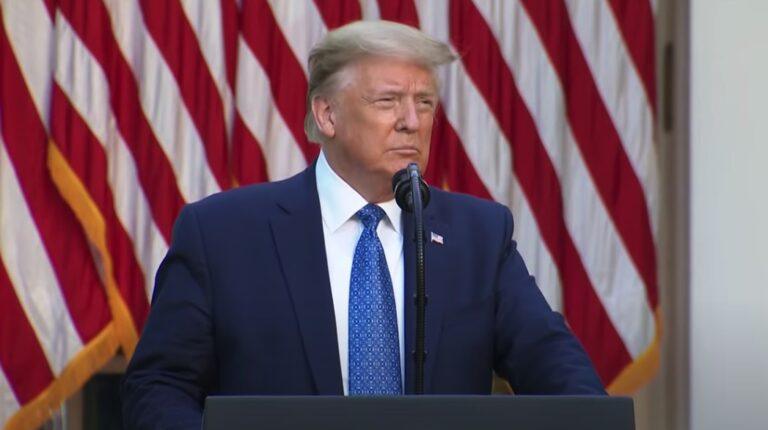On 15 July 2024, well-known macro-economist and cryptocurrency analyst Alex Krüger shared his insights on the social media platform X, discussing the potential market and economic impacts of a Donald Trump victory in the upcoming presidential election. Krüger’s analysis, dubbed “The Trump Trade,” outlines several key areas that could be significantly influenced by Trump’s policies and administration.
Bullish for Cryptocurrency
Krüger anticipates that a Trump administration might implement favorable regulations for the cryptocurrency sector. According to Krüger, this regulatory environment could encourage innovation and wider adoption of cryptocurrencies. Essentially, if the government sets up supportive rules, it can make it easier for new crypto projects to develop and for more people to start using cryptocurrencies. This could lead to an increase in the value and popularity of digital currencies.
Steepening Yield Curve
Krüger predicts that fiscal policies under Trump, such as increased government spending and tax cuts, could drive higher inflation expectations. As Krüger notes, this could result in long-term interest rates rising faster than short-term rates, leading to a steeper yield curve. To explain, the yield curve is a graph that shows the interest rates of bonds of different maturities. When the curve steepens, it means long-term interest rates are increasing more than short-term rates. This is generally a sign that investors expect stronger economic growth and higher inflation in the future, which can benefit banks and lenders as they can charge higher rates on long-term loans.
Positive Outlook for Oil, Gas, Steel, and Coal
Krüger suggests that Trump’s policies are likely to favor deregulation and promote the domestic production of fossil fuels and industrial metals. Krüger explains that this could be achieved through reduced regulatory burdens and the imposition of tariffs. In simpler terms, deregulation means fewer government rules for these industries, making it easier and cheaper for them to operate. Tariffs on imported metals can also protect domestic producers from foreign competition. Such measures would likely boost industries involved in oil, gas, steel, and coal production, potentially leading to higher profits and more jobs in these sectors.
Financial Sector Benefits
Krüger forecasts that the financial sector could see substantial gains under Trump’s administration due to deregulation efforts. Krüger believes that reducing compliance costs would enhance profitability for financial institutions. This means that banks and financial companies would spend less money and time meeting government regulations, increasing their earnings. Moreover, Krüger adds, a steeper yield curve would benefit these institutions by increasing the spread between short-term borrowing rates and long-term lending rates. Banks make money by borrowing money at short-term rates (which are typically lower) and lending it out at long-term rates (which are typically higher), so a wider spread can boost their profits.
Favorable Conditions for Small Caps
Krüger argues that Trump’s policies, including lower taxes, deregulation, and support for domestic manufacturing, are generally advantageous for small-cap companies. According to Krüger, these businesses often have fewer resources to navigate complex regulations, so easing these burdens could lead to increased growth and profitability. Small-cap companies are generally smaller, growing businesses. Lower taxes mean they keep more of their earnings, and less regulation means they spend less on compliance, allowing them to invest more in their growth.
Onshoring Initiatives
Krüger highlights the potential for policies that encourage companies to bring production back to the United States. Such onshoring efforts, Krüger suggests, would be beneficial for domestic manufacturing and companies involved in reshoring, potentially leading to job creation and economic growth. Onshoring means moving production from foreign countries back to the U.S., which can create jobs and boost the economy by increasing domestic manufacturing activities.
Bearish Outlook for Renewable Energy
Krüger anticipates that a Trump administration might place less emphasis on environmental regulations and instead support fossil fuel industries over renewable energy sources. This shift, according to Krüger, could result in decreased subsidies for renewable energy projects, making the sector less attractive to investors. In other words, if the government reduces its support for renewable energy (like wind and solar power) and focuses more on traditional energy sources (like coal and oil), it could slow down the growth of the renewable energy industry.
Uncertainty in Healthcare
Krüger also points out potential negative impacts on the healthcare sector. Efforts to repeal or replace the Affordable Care Act (Obamacare), as Krüger notes, could create uncertainty and instability in the healthcare market, potentially deterring investment and affecting service provision. This means that if the healthcare laws are changed or repealed, it could create confusion and instability in the healthcare industry, making it harder for companies to plan and operate effectively.
Trading Around a Trump Victory
Krüger concludes by advising that traders and investors should consider these potential impacts regardless of their political views. He emphasizes the importance of objective analysis in assessing the odds and making informed trading decisions based on the anticipated outcomes of a Trump victory. Essentially, Krüger is saying that regardless of one’s personal feelings about Trump, it’s important to consider these potential market effects when making investment decisions.








